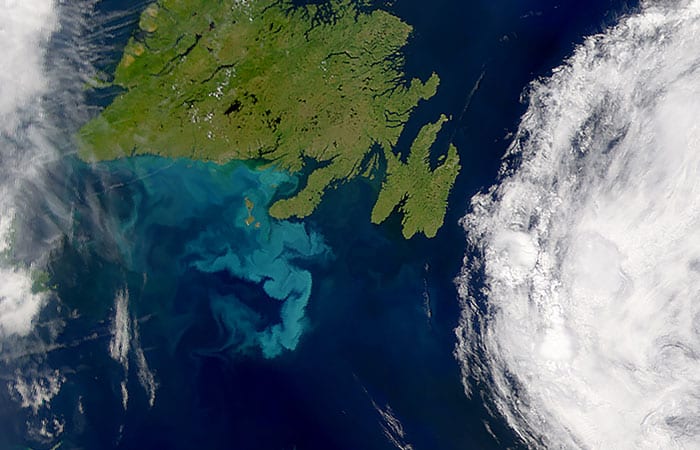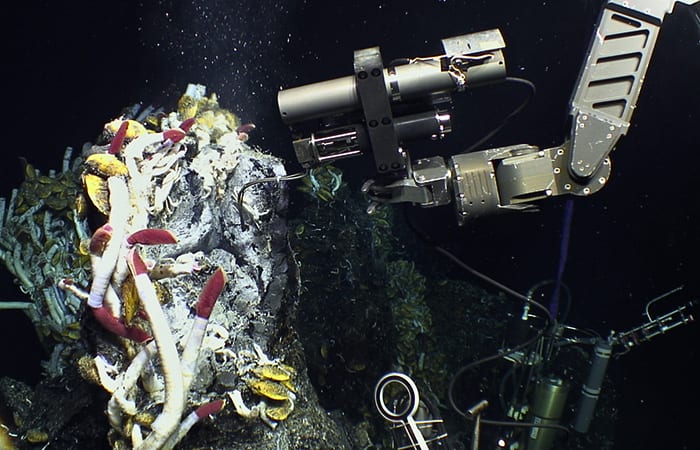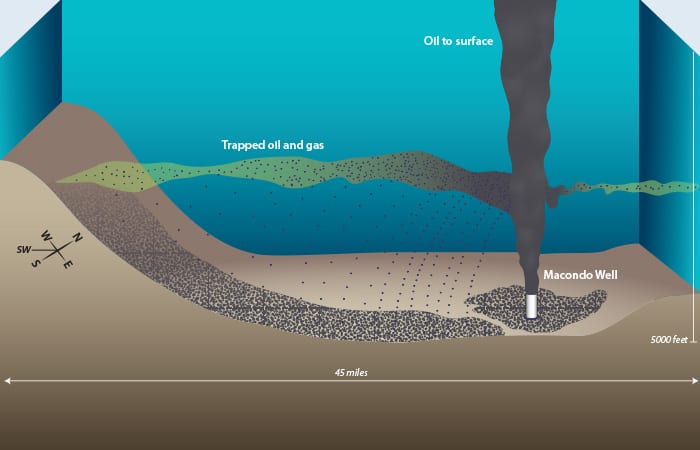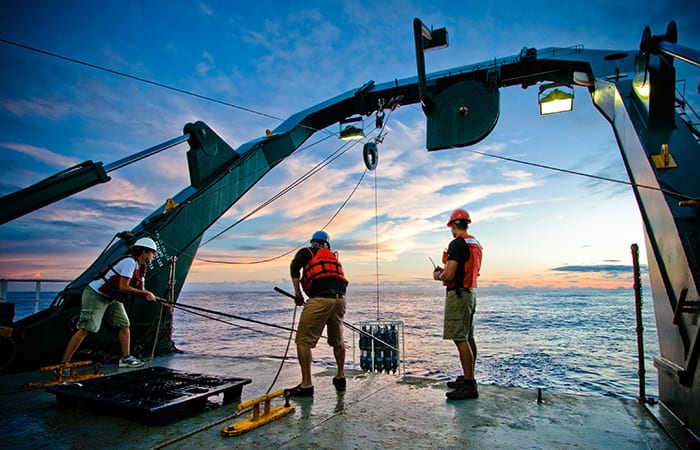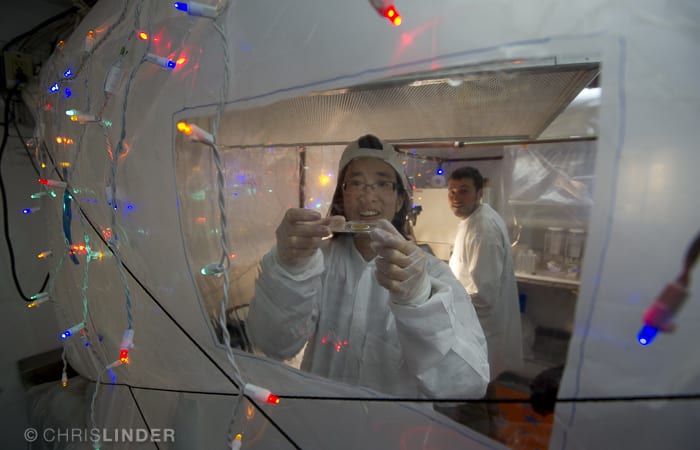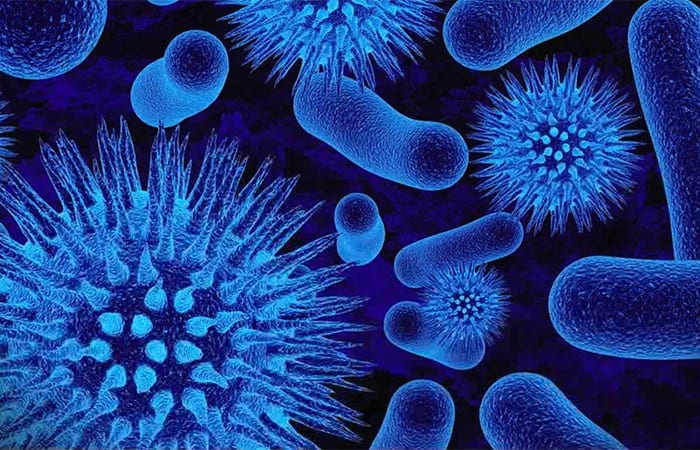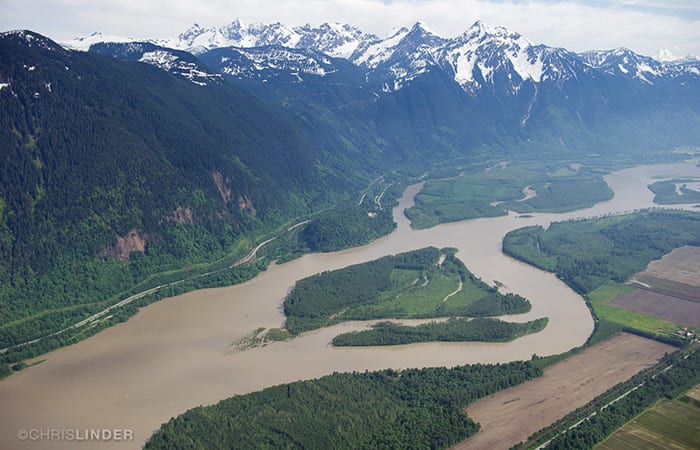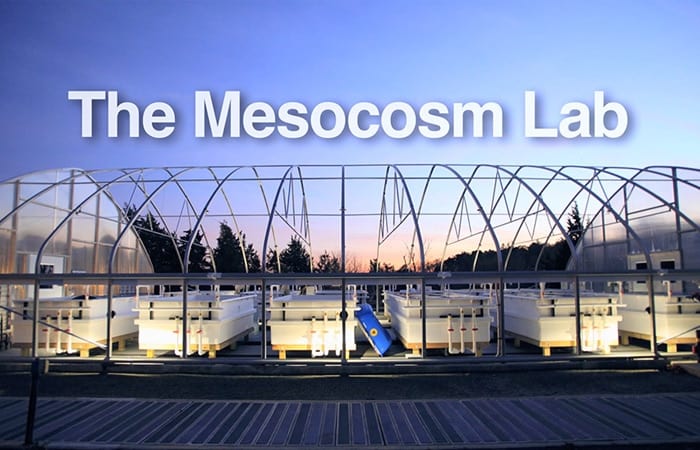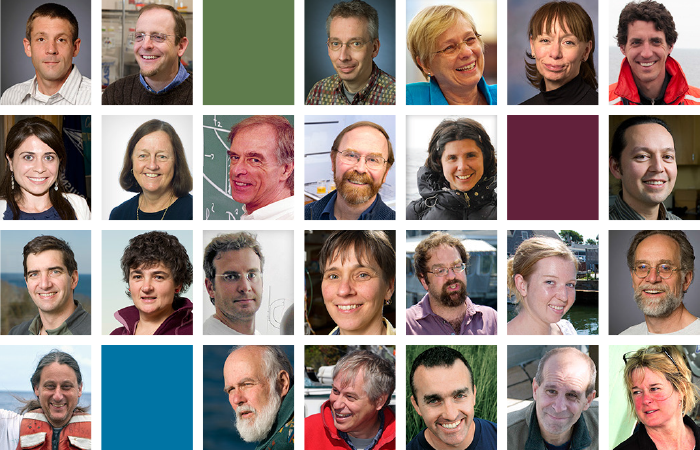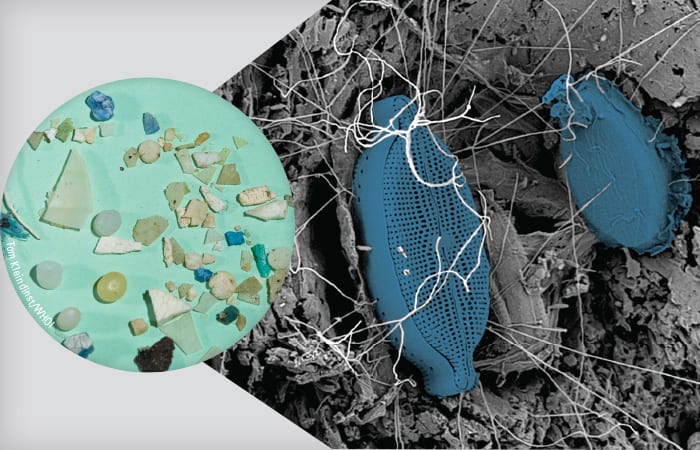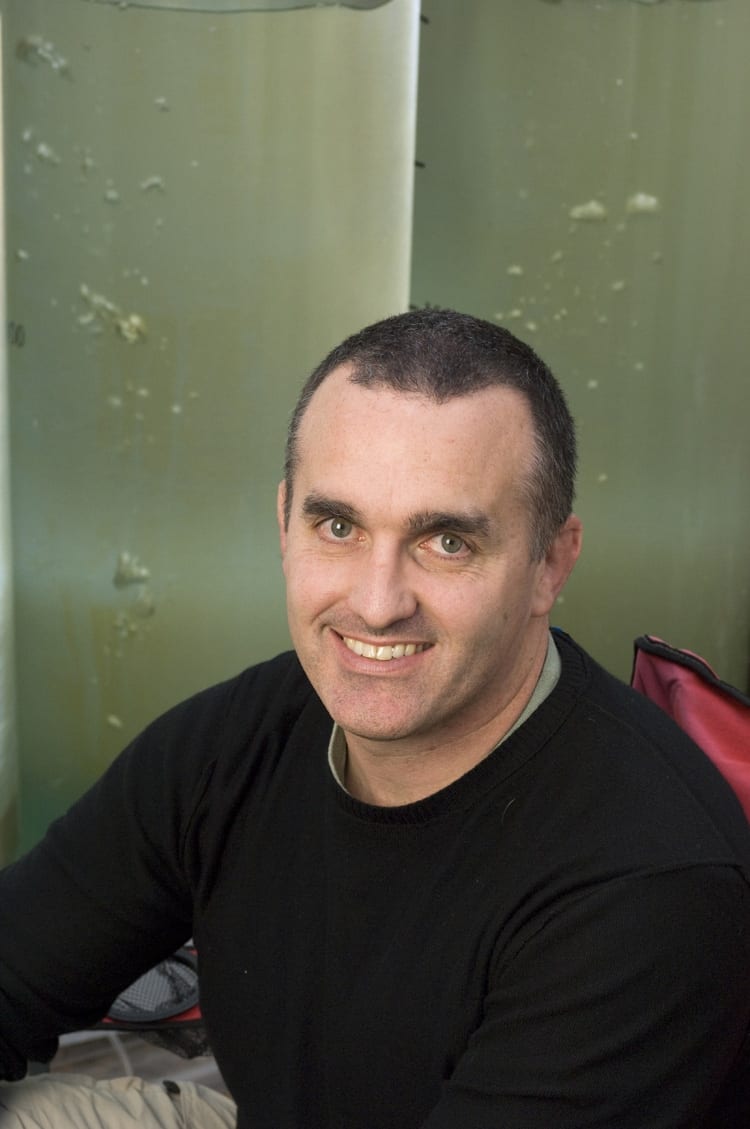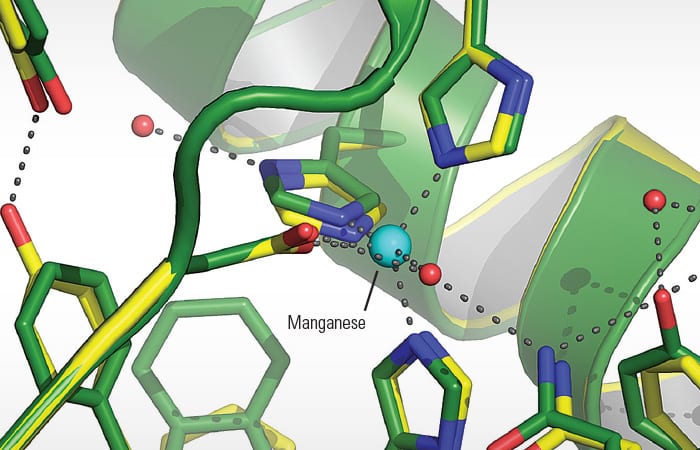Marine Chemistry & Geochemistry
New Museum Program Focuses on Impacts of Fukushima on the Ocean
Four years after the Fukushima Dai-ichi nuclear power plant accident, Japan is still recovering and rebuilding from the disaster. In March 2011 one of the largest earthquakes ever recorded shook Japan, creating a devastating tsunami and damaging the Fukushima Dai-ichi nuclear power plant. The accident resulted in the largest unintentional release of radioactivity into the ocean in history.
On the fourth anniversary of the disaster, Woods Hole Oceanographic Institution (WHOI) and the Long Beach, CA-based Aquarium of the Pacific will debut a new program about ocean radioactivity motivated by the Fukushima nuclear accident. The program will be projected daily in the Aquarium’s Ocean Science Center on the National Oceanic and Atmospheric Administration’s (NOAA) Science on a Sphere® and will be made available to more than 100 institutions around the world through NOAA’s SOS Network with a capacity to reach over 50 million combined visitors.
Read MoreStudy Finds Deep Ocean is Source of Dissolved Iron in Central Pacific
A new study led by scientists at the Woods Hole Oceanographic Institution (WHOI) points to the deep ocean as a major source of dissolved iron in the central Pacific Ocean. This finding highlights the vital role ocean mixing plays in determining whether deep sources of iron reach the surface-dwelling life that need it to survive.
Read MoreNew Use for Well-known Algae
A curious chemical compound in certain marine algae has been a godsend for oceanographers, helping them reconstruct past ocean conditions. Now the same compounds also may be useful in a completely different way: to produce jet fuel.
Read MoreJet Fuel from Algae?
New research shows a way to tap overlooked fats in marine algae to produce compounds used in jet fuel.
Read MoreResearchers Produce Two Biofuels from a Single Algae
A common algae commercially grown to make fish food holds promise as a source for both biodiesel and jet fuel, according to a new study published in the journal Energy & Fuels.
The researchers, led by Greg O’Neil of Western Washington University and Chris Reddy of Woods Hole Oceanographic Institution, exploited an unusual and untapped class of chemical compounds in the algae to synthesize two different fuel products, in parallel, a from a single algae.
Read MoreFukushima Radioactivity Detected Off West Coast
Monitoring efforts along the Pacific Coast of the U.S. and Canada have detected the presence of small amounts of radioactivity from the 2011 Fukushima Dai-ichi Nuclear Power Plant accident 100 miles (150 km) due west of Eureka, California. Scientists at the Woods Hole Oceanographic Institution (WHOI) found the trace amounts of telltale radioactive compounds as part of their ongoing monitoring of natural and human sources of radioactivity in the ocean.
Read MoreBig Questions About Tiny Bacteria
It’s 3 a.m., and Jesse McNichol is struggling to stay awake. Since midafternoon, he’s been in his lab, tending to a jumble of glassware, plastic tubing, and metal cylinders filled…
Read MoreWhere Did Deepwater Horizon Oil Go?
The Deepwater Horizon oil spill was unprecedented, and five years later, scientists are piecing together new insights into how the oil moved and behaved in the deep ocean.
Read MoreProteomics Reveals Ocean’s Inner Workings
In a new study, WHOI scientists have demonstrated how the emerging biomedical technique of measuring proteins—a field called proteomics—can be applied to the ocean to reveal the inner biochemical workings of microbial life and ocean ecosystems.
Read MoreScientists Apply Biomedical Technique to Reveal Changes Within the Body of the Ocean
For decades, medical researchers have sought new methods to diagnose how different types of cells and systems in the body are functioning. Now scientists have adapted an emerging biomedical technique…
Read MoreWHOI Scientists Receive $1 Million Grant from MacArthur Foundation
Rapid climate change and an increasing range of climate impacts are already being felt along our coasts, and new research suggests that U.S. Northeast coastal waters may be more vulnerable…
Read MoreMercury in the Global Ocean
Although the days of odd behavior among hat makers are a thing of the past, the dangers mercury poses to humans and the environment persist today. Mercury is a naturally…
Read MoreDispersant from Deepwater Horizon Spill Found to Persist in the Environment
A new study by scientists at Haverford College and Woods Hole Oceanographic Institution (WHOI) has found that the dispersant compound DOSS, which decreases the size of oil droplets and hampers the formation of large oil slicks, remains associated with oil and can persist in the environment for up to four years.
Read MoreUncovering the Ocean’s Biological Pump
Dan Ohnemus clearly remembers the highlight of his fourth-grade class in Bourne, Mass. He and his classmates made a satellite call to scientists at Woods Hole Oceanographic Institution (WHOI) who…
Read MoreDrug Discovery in the Ocean
WHOI scientists are investigating a wide range of unexplored microbes that produce chemicals with potential therapeutic value.
Read MoreStudy Tests Theory that Life Originated at Deep Sea Vents
One of the greatest mysteries facing humans is how life originated on Earth. Scientists have determined approximately when life began (roughly 3.8 billion years ago), but there is still intense debate about exactly how life began. One possibility – that simple metabolic reactions emerged near ancient seafloor hot springs, enabling the leap from a non-living to a living world – has grown in popularity in the last two decades.
Recent research by geochemists Eoghan Reeves, Jeff Seewald, and Jill McDermott at Woods Hole Oceanographic Institution (WHOI) is the first to test a fundamental assumption of this ‘metabolism first’ hypothesis, and finds that it may not have been as easy as previously assumed. Instead, their findings could provide a focus for the search for life on other planets. The work is published in Proceedings of the National Academy of Science.
Read MoreOf The River and Time
The Fraser River in western Canada is flowing with tiny time capsules. Inside them is a fascinating history of Earth’s landscape and climate. For the past four years, I have…
Read MoreThe Mesocosm Lab
A mesocosm is an ecosystem in miniature, providing a useful middle ground between an indoor lab and the great outdoors.
Read MoreCoral Reefs in Palau Surprisingly Resistant to Naturally Acidified Waters
Ocean researchers working on the coral reefs of Palau in 2011 and 2012 made two unexpected discoveries that could provide insight into corals’ resistance and resilience to ocean acidification and to aid in the creation of a plan to protect them.
Read MoreHow Radioactive is Our Ocean?
Woods Hole Oceanographic Institution (WHOI) marine chemist Ken Buesseler began sampling and analyzing seawater surrounding the Fukushima Dai-ichi nuclear power plant three months after the 2011 disaster. Today, he launched…
Read MoreWHOI Scientists Garner Awards in 2013
As the year 2013 ends, we profile scientists who recently received awards and recognition for their work.
Read MoreBehold the ‘Plastisphere’
Plastic debris provides living space for a variety of marine microbes.
Read MoreReddy Selected for C.C. Patterson Award
Marine geochemist Chris Reddy has been selected to receive the 2014 Clair C. Patterson Award from the Geochemical Society for his analytical and scientific contributions to organic geochemistry. The C.C.…
Read MoreAn Oddity about Lyme Disease Bacteria
The bacterial species that causes Lyme disease avoids a key human defense by not requiring iron. For a WHOI microbial chemist, that raised a big question: What does it use instead of iron?
Read More
